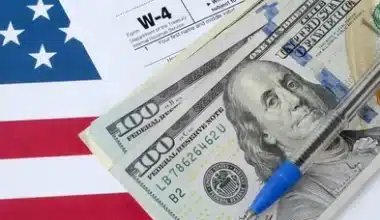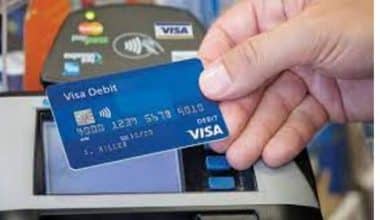Business credit is something you build over time, similar to personal credit. Business credit takes various elements into account and is reflected as business credit scores.
Furthermore, both business and personal credit might have an impact on the prices you pay for goods and services. For example, if your business credit score is strong, you may be able to pay reduced insurance prices. If you have good business credit or card, you may also be eligible for lower interest rates on small business loans or lines of credit.
All of this may be useful if you want to negotiate longer terms with vendors, which may allow you more room to manage cash flow.
We’ll go through the fundamentals of what business credit is, how it’s utilized, and how you can build your company’s credit.
What is Business Credit?
Business credit refers to lenders’ readiness to provide cash to a firm based on an assessment of its ability to borrow and repay debt. Business credit is frequently quantified with a score, similar to personal credit. Having a good business credit score can help you acquire loans for your company. The higher your credit score, the lower the interest rates on your loans will be. Furthermore, having a strong credit score allows you to borrow more money.
Reasons To Obtain and Keep Strong Business Credit
- Obtaining funds
- Keep ownership secure.
- Personal credit should be protected.
- Create credit for the future.
There are various reasons why you might want to obtain business credit.
- Obtaining funds
A simple approach to get capital to invest in your business is through business credit. - Keep ownership secure.
Unlike seeking investors, obtaining financing through business credit has no impact on the ownership of your company. - Personal credit should be protected.
Your personal credit score will not be affected if your business is unable to repay its loans on time or has poor credit. - Create credit for the future.
Even if you don’t need money right now, if you think you might in the future, opening a business credit account can provide you with greater borrowing options in the long run.
What is the Process of Obtaining Business Credit?
Dun & Bradstreet, Equifax, and Experian are the three major business credit bureaus that rank businesses and give credit ratings to establish their creditworthiness. These agencies generate credit scores and reports for businesses based on variables such as a company’s track record on previous loan repayments, credit use, and the personal credit histories of the company’s owners. The risk of lending to your business is assessed by lenders using credit reports and scores.
What Effect Does Business Structure Have On Credit?
There are various types of business structures available to businesses, and each has varied credit requirements.
#1. The Sole Proprietorship.
Sole proprietorships are enterprises that are owned by a single person who is completely responsible for the company’s debts. Creditors are permitted to claim the business owner’s personal assets in the event that the company goes bankrupt.
#2. Limited Partnership.
Limited partnerships have several owners, but only the general partners are personally accountable for business debts. The other partners are referred to as limited partners. They have less say in how the business is operated, but they are not personally accountable for its obligations.
#3. Limited Liability Partnership.
In an LLP, all business owners are considered partners and have some liability protection in the event of negligence or misconduct on the part of other business partners. However, whether or not the owners are totally immune from personal culpability in the event of their own negligence differs by state.
#4. Limited Liability Company.
An LLC is a business structure that protects the personal assets of the business owner from any claims brought against the business. To exist, LLCs must pay specific fees to both the federal and state governments, making them more expensive to maintain.
#5. Corporation.
Shareholders in a corporate business structure are not accountable for the company’s debts beyond the amount invested. In contrast to LLCs, creditors can occasionally claim the company’s assets in the case of a default, cancel shareholders’ voting rights, and alter the company’s leadership.
Types of Business Credit
- Vendor Credit
- Supplier Credit
- Services Credit
- Retail Credit
- Business Credit Card
#1. Vendor Credit
To achieve their objectives, most firms must purchase equipment, resources, or inventory from a vendor. A restaurant owner, for example, will need to purchase ingredients to create meals. Large vendors may occasionally allow business owners to open what is known as a “net 30 account,” which allows a company to acquire supplies on credit with payback expected within 30 days. Many small firms use these commercial transactions to build credit.
#2. Supplier Credit
Supplier credit, like vendor credit, involves credit from suppliers to business owners purchasing inventory or resources for their businesses. On the other hand, supplier credit usually refers to longer-term and more intricate agreements than vendor credit. In international imports and exports, supplier credit arrangements are frequently employed.
#3. Services Credit
This is credit given to the business owner for services rendered. Utilities such as electricity, gas, water, and the Internet are examples. Typically, both businesses and individuals pay utility bills at the end of the month after services have been rendered. Paying your service bills on time will help you build your credit score and improve your payment history.
#4. Retail Credit
These are borrowing options that are widely available to the general public. Bank loans, mortgage loans, and credit card loans are a few examples. The higher your credit score, the more loans you will be able to obtain.
#5. Business Credit Card
Credit cards are one of the most common ways to build business credit since they allow you to pay for all of your business costs with a single card and pay the amount at the end of each month. Many business credit cards are offered to businesses with little or no credit history, making them a viable alternative for new business owners. However, there are credit limits for new businesses as well as high-interest charges if the card debt is not paid off within the current billing cycle, which is normally 30 days.
Five Methods for Establishing Business Credit
- Create a business registration.
- Apply for a Dun & Bradstreet number.
- Request a business credit card.
- Sign up for relevant net 30 accounts.
- All bills must be paid on time.
Building business credit can be a time-consuming process, making it a scary concept. However, the methods below can help you improve your credit score and get back on track.
#1. Create a business registration.
You must first register your legal business name with the proper government organizations before applying for business credit. The registration process will differ depending on where your business is located. In the United States, you may be required to register your business at the local, state, and federal levels. You will also need to obtain a federal employer identification number (EIN) from the IRS, which is available for free on their website.
The length of the registration procedure is determined by the type of business structure you select, with sole proprietorship registration being the easiest and corporate registration being the most involved.
#2. Apply for a Dun & Bradstreet number.
The DUNS number, or Dun & Bradstreet number, is a unique nine-digit number used to identify a business. Before agreeing to provide you with a loan, creditors in the United States will need your DUNS number and EIN. Many other countries use the DUNS number to identify firms as well.
#3. Request a business credit card.
When it comes to credit building, business credit cards are invaluable. They work almost identically to personal credit cards in that you can use the card to pay for your spending.
#4. Sign up for relevant net 30 accounts.
Registering for net 30 accounts, which allow you to purchase things for your business on credit, is another crucial strategy to build credit. The debt for the acquired items must be repaid within 30 days. Because each supplier requires a distinct net 30 account, most organizations only register with providers they anticipate using frequently. Paying down your net 30 accounts on schedule will help you build credit.
#5. All bills must be paid on time.
The key to building credit is to pay bills on time and frequently. Every credited bill you pay from your business checking account, including utility bills and rent, might help your credit score. As long as you routinely make on-time payments, your business credit score should improve over time.
#6. Credit line for businesses
Opening a credit line allows you to borrow money in the future. When you start a credit line, you will be given a credit limit, which is the maximum amount of money you can borrow at one time.
For example, you could be approved for a $5,000 credit line. You can take out one or more loans up to a total of $5,000. In most cases, you only pay interest or fees on the amount borrowed, so borrowing as little as possible will help you save money.
Credit lines are revolving accounts, which means you can borrow from them frequently without having to reapply. You may, for example, borrow $1,000 from your $5,000 credit line, and the lender will deposit the funds into your account. You will then reimburse the $1,000 plus interest. After that, you can borrow up to $5,000 again.
Alternatively, if the combined loan amounts are less than $5,000, you may be permitted to take out another loan while still repaying the first.
Opening a line of credit could help alleviate financial worries. You will have some assurance that you can borrow money to cover an expense or invest in a new opportunity. However, before obtaining a credit line, shop around for multiple lenders; otherwise, you may end up paying more in fees and interest than necessary. Some (but not all) accounts, for example, charge an annual fee that you must pay even if you do not take out a loan.
#7. Loan for a business
Perhaps you need to obtain supplies or purchase a vehicle so you can make deliveries. If you have a single expense that you cannot afford in full, obtaining a business loan may be a viable choice.
With a business loan, you’ll get the whole amount you wish to borrow right away and repay it, plus interest, over time. There are other sorts of business loans that are unique, such as equipment loans, which can be used to purchase (rather than rent) an expensive piece of equipment.
The amount of money you can borrow, the interest rate you pay, and the length of time you have to return the loan are all affected by a variety of circumstances, including:
- The financier
- Your personal credit score
- The creditworthiness of your business
- Your business strategy
- How much money does your business make?
- How long have you been in business?
Whether you provide collateral, which is something of value that the lender can seize if you are unable to repay the loan, such as a house, business facility, or automobile.
Lenders’ requirements and offers may differ, and browsing around for numerous loan offers may help you acquire a good loan. Many small business owners may be required to sign a personal guarantee for a business loan, which means they commit to repaying the debt if the company fails to make payments.
Business Credit card
A business credit card can be used to pay for ordinary business expenses as well as to borrow money. Business credit cards may provide several advantages that personal credit cards do not, such as:
- Employee cards, which allow you to provide a credit card to an employee that is linked to your business account. You may be able to restrict how much the employee may spend and where the card can be used.
- Using a business card may help you separate your personal and business spending, making it easier to keep correct business records and organize your expenses prior to completing tax returns.
- A business credit card could assist your company in building its credit history.
- Purchases and balances on your business credit card may or may not have an effect on your personal credit history. You may still be personally liable for the debt, and unpaid business credit card balances may end up on your personal credit reports.
- Credit cards typically have higher interest rates than credit lines or loans, making them a more expensive source of financing for major purchases if you are unable to pay them off immediately. They can, however, provide a reasonable short-term answer for managing day-to-day spending.
How to Keep Your Business Credit Positive
One of the most crucial aspects of establishing a good credit score is maintaining it once you’ve reached your desired level. Paying bills on time or early and developing strong connections with credit card issuers are two of the simplest strategies to keep your business credit score in good standing.
However, it is crucial to remember that creating strong financial habits, such as saving money, paying bills and taxes on time, making informed financial decisions about the future of your business, and developing excellent connections with suppliers and other businesses, is a key component of building good credit. While these factors may not directly affect your credit score, they do contribute to the overall financial experience that your business must provide.
Monitoring your business credit score to verify accuracy is another critical component of keeping it. Businesses must occasionally challenge inaccuracies and other concerns on their credit report that may not adequately reflect what occurred with a specific financial transaction.
Monitoring your business credit score isn’t tough, but you should know how to do it correctly.
Where Can You Find Your Business Credit Score?
Some third-party services notify businesses when their credit scores change at the major credit bureaus. This can be a fantastic way to keep track of your credit score throughout the year.
Another method is to independently check with the individual business credit reporting organizations. It is not difficult, but you may be required to register directly with the agencies, which include Experian, Dun & Bradstreet, and Equifax.
How Long Does It Take to Get Business Credit?
New accounts may not surface on your business credit reports for several months. Once they do, you’ll need to make on-time payments for several months to develop a solid business credit score. Whether you have a new or established business, if you follow the methods outlined above, you may be able to create a strong business credit rating within several months to a year.
Business Credit for Startups
You can start building business credit as soon as you open your doors. In fact, the sooner you start building business credit, the sooner you may reap the benefits. Nonetheless, you need to ensure that you have set your fundamental business information (name, address, etc.). These business credit articles will teach you more.
What Is the Minimum Business Credit Score?
There are various ranges for business credit scores. Both the Experian Intelliscore and the D&B Paydex scores go from 0 to 100. Other scores can begin with a different number. If your business hasn’t developed credit, you may have a poor credit score or none at all. This is fairly frequent, even for organizations that have been in business for a long time.
Personal Credit vs. Business Credit
While both business and personal credit attempt to portray a picture of financial prudence, they are unique and separate. Assuming your business operates as a separate entity, its credit score and ratings apply to the company rather than its owners or executives. A personal credit file, on the other hand, is intended to assess an individual’s creditworthiness.
Building your small business’s credit scores and ratings does not happen quickly. To help put their best foot forward when a lender or possible business partner examines their business credit report, responsible business owners should try to develop and maintain respected scores and ratings.
Bottom Line
A business credit score is necessary for maintaining a financially viable and healthy business. It demonstrates to lenders and other businesses that your organization is financially sound and capable of paying key payments. It will not only assist you in obtaining loans, but it will also present you with alternatives to avoid prepayment. A good credit score might help you drive down prices or acquire more favorable interest rates and terms on financing packages from banks and online lenders as a bargaining weapon.
Once your business is legally founded, the greatest method to build credit is to pay your obligations on time – and as early as possible. You can improve your credit rating by acquiring credit cards and keeping your credit utilization below 30%. Continue to build your company’s financial image, and check in with the major credit bureaus on a regular basis to confirm your credit score is correct.
Related Articles
- Steps To Building Business Credit
- HOW TO GET A BUSINESS LOAN WITH BAD CREDIT: All You Should Know
- $2000 LOANS: What to Know About Getting a $2000 Loan With No Credit Check
- HOW DO BUSINESS LOANS WORK: What It Is and How It Works
- How, Where, and When To Borrow Money






